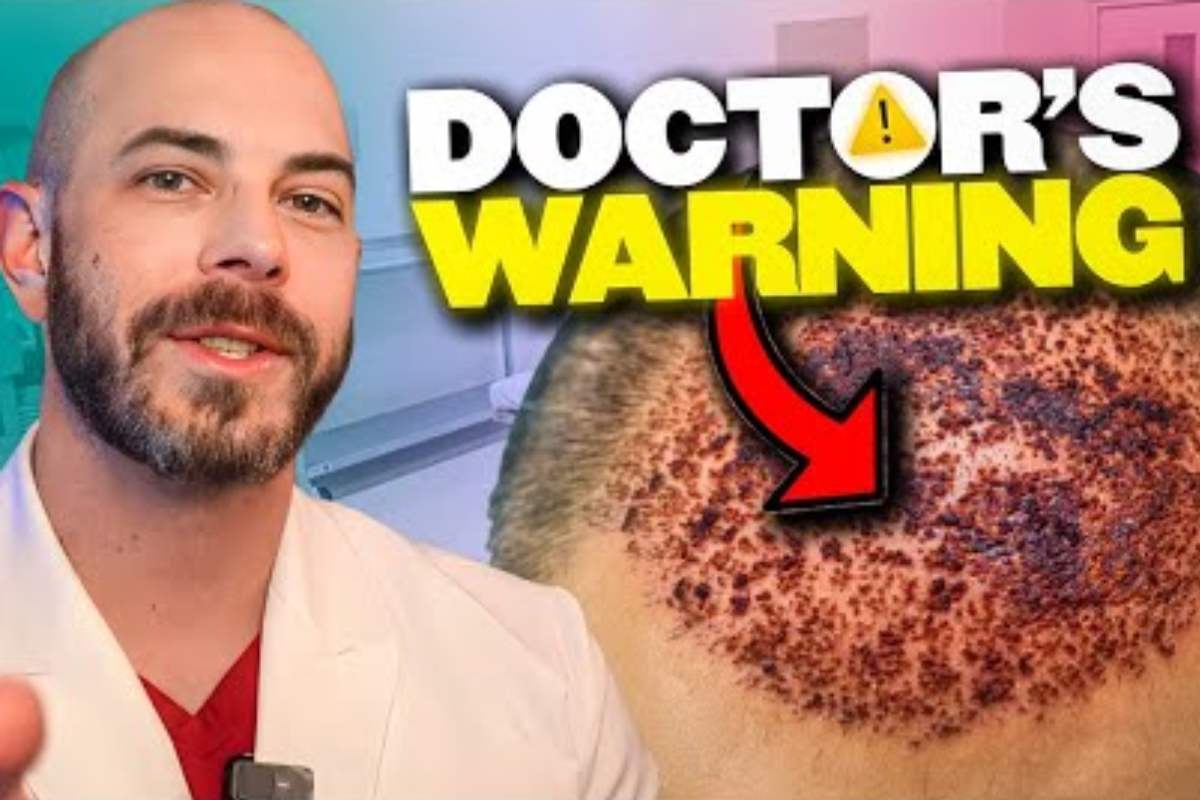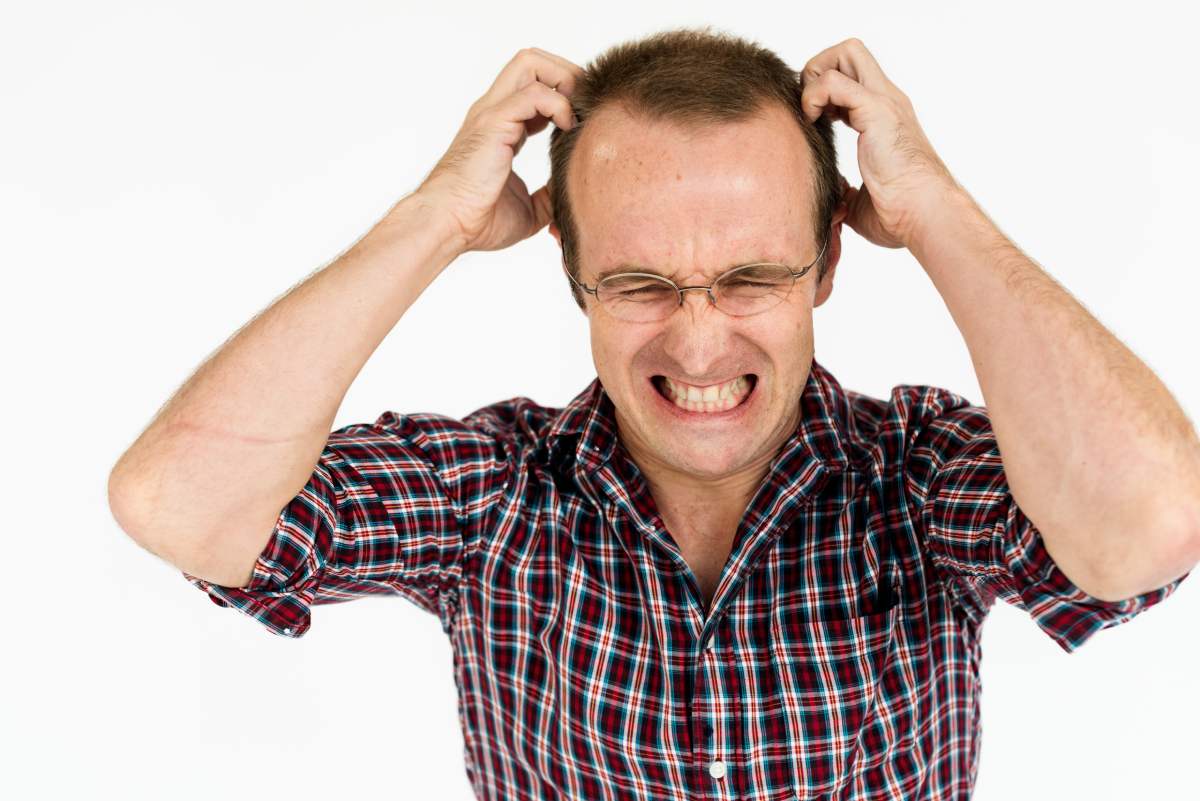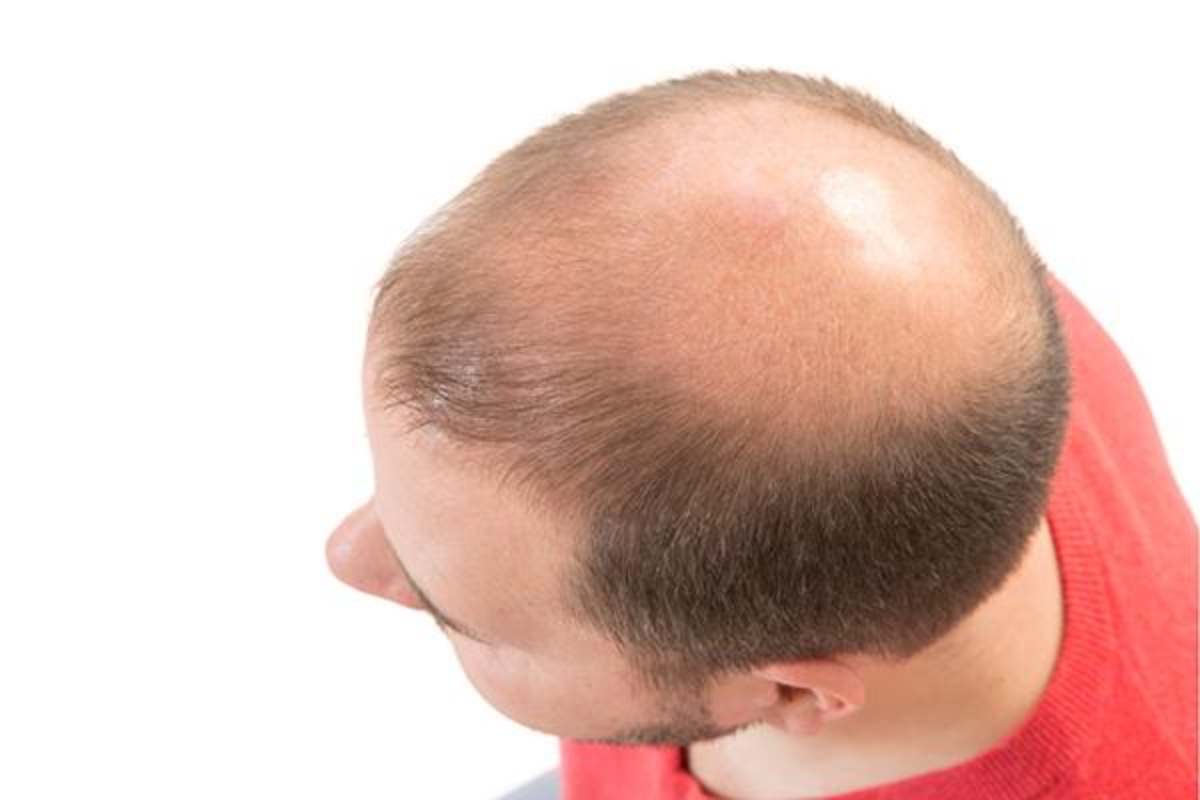Hair loss is a very common problem that affects millions of people around the world. There are many different factors that can cause hair loss including genetics, hormones, medications, stress, and nutrition. Most people experience hair loss due to genetics, but the reason behind that hair loss is a hormone called DHT, or dihydrotestosterone.
DHT is a hormone that is produced in the body when testosterone is converted to its active form inside our cells. It’s the more potent form of testosterone and plays a key role in the development of the male body during adolescence but continues to regulate metabolic processes and bodily function throughout a man’s life. It’s an essential part of the hormonal balance of the male (and female) body, but too much of it may be causing you to lose your hair.
And while DHT is naturally found in men, excessive levels of DHT have also been linked to hair loss in women.
How Does DHT Affect Hair Loss?
Every man needs testosterone (and estrogen) to maintain a healthy body. But some men’s bodies respond differently when it comes to hair. Two men can have the same level of circulating testosterone and DHT and one can be bald while the other isn’t. How does this happen?
First, we have to learn a little bit about cellular biology. The microscopic environment that surrounds each and every hair follicle on your body contains enzymes and receptors that process testosterone (and all the other hormones like estrogen and cortisol). In the case of testosterone, it circulates through the bloodstream to the tissues like hair, skin, muscles, and brain. Once there, the Testosterone receptors on the outside of the cells recognize the hormone and pull it into the cells. Inside the cells, the enzymes “5-alpha reductase types I and II,” activate testosterone into DHT. This more potent and active form of the hormone becomes a key that turns on a cascade of activity which regulates function or growth of that particular tissue in different ways.
Ever wondered why you’re growing more hair on your back or ears as you age but less on your head where you want it? It all relates back to DHT and the cascade that it unlocks. The same hormone causes some hair to grow while other hair to fall out! It’s puzzling mystery that we really don’t have an answer as to why this happens, but we know it does.
Studies have shown that men with male pattern baldness do not have higher circulating levels of testosterone or DHT, but withing the hair cells in the areas of thinning, they do have higher levels of 5-alpha reductase and DHT. So, more activation of even normal levels of testosterone seems to be to blame for male pattern hair loss. Sadly, nearby ear, nose and back hair suffer the opposite fate; more DHT equals more, thicker, longer hairs!
So hopefully this helps explain how hair follicles respond to DHT. Due to genetic differences in the level of the key enzyme in testosterone activation, you can have elevated levels of DHT in your hair follicles which can cause them to shrink or stop producing hair altogether. This process, known as miniaturization, mainly affects the hairline, top, and crown of the scalp.
Now, if you are on Hormone Replacement Therapy (HRT), Anabolic Steroids (any synthetic testosterone used for body building), or any other growth hormone treatment aimed at raising your testosterone, this whole process of DHT production is upregulated or exaggerated. More testosterone available to the cells will cause the enzyme to produce even more DHT and therefore more potential hair loss on the scalp or more ear/nose/body hair to grow.
Thankfully there are DHT blockers available that can help prevent excess DHT from forming in the body, thus helping to control the hair loss you may be experiencing.
What are DHT Blockers?
DHT blockers are medications designed to minimize DHT from forming in your scalp where the 5-alpha reductase enzyme is most active. They work by inhibiting the enzyme so that we decrease the levels of DHT before it trips the cascade leading to the hair miniaturization process.
If we can block the DHT from stimulating the hair follicles, we can oftentimes reverse the miniaturization process for years or even decades. In the great majority of men, these medications can at least slow down the hair loss process.
Unfortunately, while DHT blockers do work by blocking DHT, they aren’t able to reverse or stop male pattern baldness indefinitely. With time, the best they can do is slow down the effects of DHT, but genetics and age are always going to play a more major role in hair loss than DHT. DHT blockers will not reverse the natural process of hair loss permanently.
Types of DHT Blockers
There are a few different types of DHT blockers available that can help slow down the affects of excess DHT on your hair. Each of them have their own benefits and downsides, but remember, it’s always important to speak with your doctor first before going on any sort of treatment plan for your hair loss.
Prescription DHT Blockers
If you’ve seen your doctor and they have determined that you have elevated levels of DHT in your body, which could be contributing to your hair loss, then they may write you a prescription for a DHT blocking medication.
There are a couple types of prescription DHT blockers that are used most frequently for hair loss. These medications are finasteride (commonly known as Propecia) and dutasteride (Avodart). These medications help prevent testosterone from being converted into DHT in the prostate, hair follicles, and oil glands (Dutasteride). To date, finasteride 1mg is the only drug that is labeled for use in male pattern hair loss by the FDA but these two medications, along with finasteride 5 mg have similar biologic activity.
Known as 5-alpha-reductase inhibitors, these drugs are some of the best options when it comes to medicinal treatments for hair loss, but do come with the small possibility of side effects. Decreased sex drive, erectile dysfunction, depression, breast cancer, and decreased sperm counts are uncommon but tend to be the ones that men are most worried about. Dr. Krejci answers questions about these side effects numerous times a day! Mostly, she is able to alleviate patient concerns over the drug’s safety.
In case you are wondering, there are many other enzymes that activate testosterone in other parts of your body where you don’t want to block it, like your muscles, heart, and brain, for example. So if you’re worried about the effect that blocking DHT may have on other tissues, don’t worry! Your testosterone will continue to circulate and be unaffected at those tissues. Dr. Krejci treats both body builders and “Regular Joes” who want to keep their hair looking good!
The prescription DHT blockers are by far the most effective therapy for treatment of male pattern baldness but if you’re looking for something more natural or non-prescription, with less possible side effects, there are other DHT blocker options.
Over-The-Counter DHT Blockers
If you’re looking for a medicinal DHT blocker that doesn’t require a prescription, there are over-the-counter options in the form of oral supplements and topical preparations.
These supplements are not specifically designed to treat hair loss, as they are not FDA approved for this purpose, but some people may find them more effective than no treatment at all.
OTC (over-the-counter) DHT blockers typically contain natural ingredients like green tea extract, nettle root extract, pumpkin seed extract, and saw palmetto.
While these OTC DHT blockers are generally considered safe, it’s always important to check with your doctor first. If you haven’t determined the cause of your hair loss to be linked to DHT, then you may be spending money on a supplement that will have no real benefit to you.
Natural DHT Blockers
If you don’t want to go the prescription route there are naturally occurring DHT blockers that you can take to help lower your DHT levels. Some of these products are mentioned above in the over-the-counter supplements as well, but these are the natural ways to consume DHT blockers.
Saw palmetto is a palm plant native to the southern United States that is typically used to help with prostate health. Since DHT is produced in the prostate, consuming saw palmetto is also thought to be a natural DHT blocker.
Pygeum comes from the bark of the Prunus Africana tree, which is native to Africa. Pygeum is known to contain chemicals that can help to shrink the prostate if you suffer from an enlarged prostate. Again, since it works on the prostate, the thought is that it may help reduce DHT produced in that region of the body.
Pumpkin seed oil has been shown, in small studies, to help reduce hair loss and sometimes even promote hair growth. It is rich in zinc and other chemicals thought to have DHT blocking properties, but the studies conducted haven’t fully proven its relationship to hair loss treatment.
Are DHT Blockers Right For You?
If you’ve started to notice your hair thinning as you’ve gotten older and are looking for options in treatment, DHT blockers may be a great option for you.
After visiting your doctor, they will be able to better understand the underlying causes of your hair loss and will then help you develop a treatment plan. Hair loss treatment with medication has come a long way over the years and the first option might not always be a hair transplant in every case. However, there is still no magical hair grown serum that you can take, or apply topically to your scalp, that is going to cause a full head of hair to regrow.
Be sure to manage your expectations and talk with your doctor about what your end goal is. Prescription, non-prescription, and natural remedies may help to slow the process, but in most cases they aren’t going to cause all of your hair to magically regrow. But the earlier you start to treat your hair loss, the better.
If you would like more information on medicinal hair loss treatments or hair transplants, please contact us today at the Limmer Hair Transplant Center in San Antonio, Texas.







